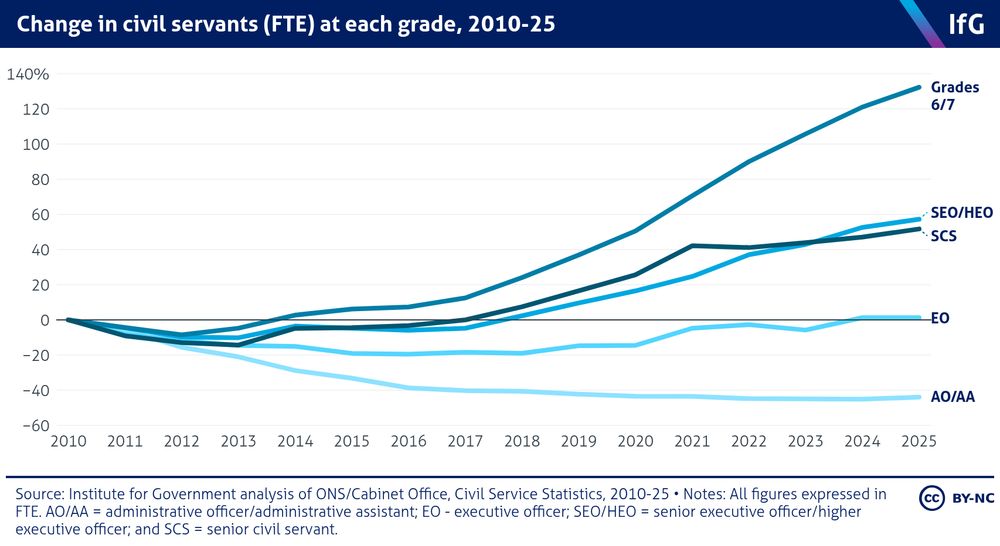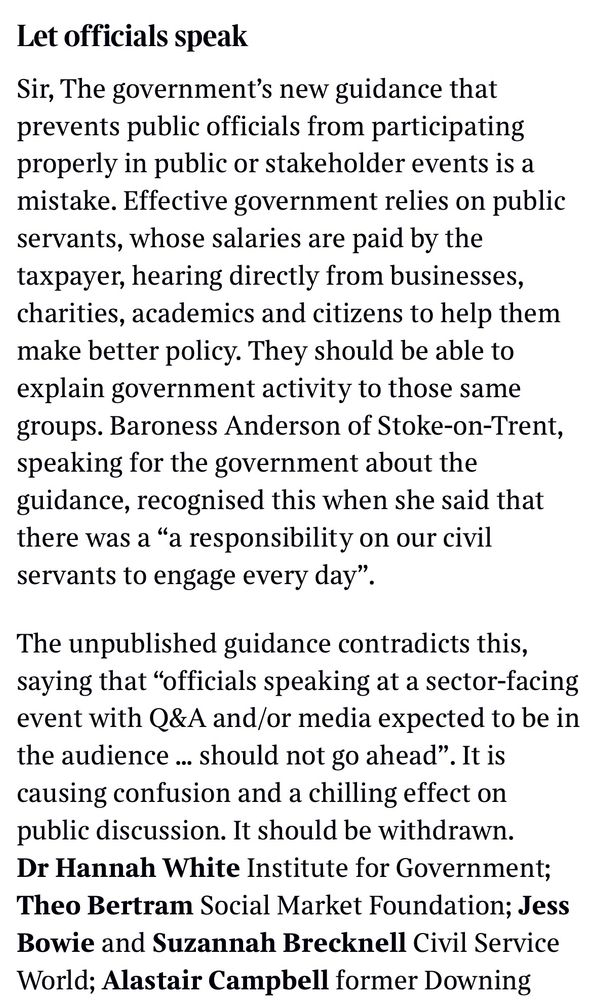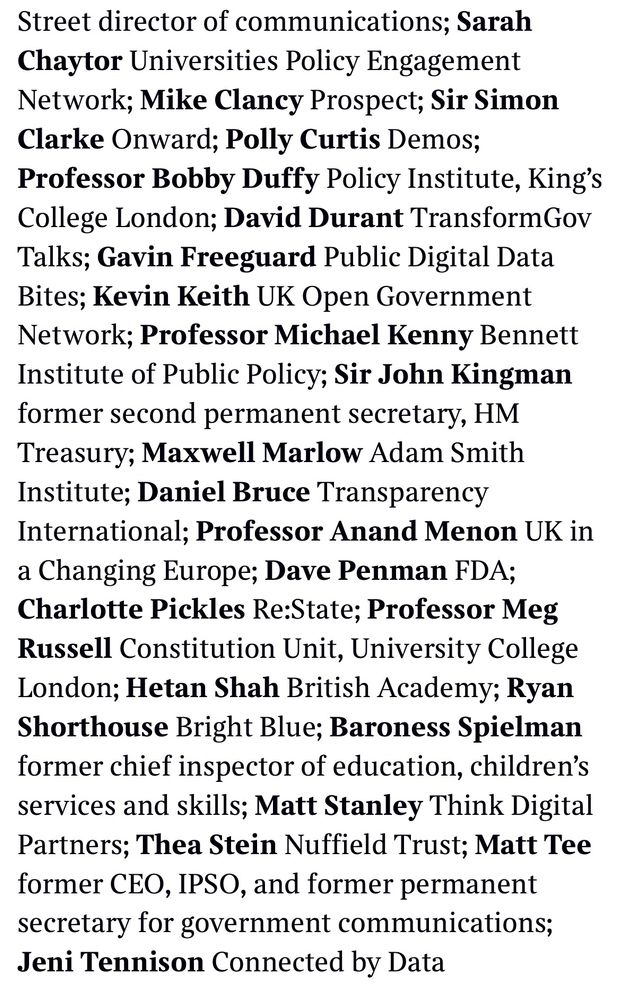www.instituteforgovernment.org.uk/event/govern...

🧵⬇️
www.instituteforgovernment.org.uk/publication/...

🧵⬇️
www.instituteforgovernment.org.uk/publication/...
The chance to maintain common facts and a shared information space - alongside passionate disagreement and political debate - is one of the UK’s potential strengths. The BBC is surely essential for that
The chance to maintain common facts and a shared information space - alongside passionate disagreement and political debate - is one of the UK’s potential strengths. The BBC is surely essential for that
@jillongovt.bsky.social takes a closer look at why the government is talking about Brexit and the economy again www.instituteforgovernment.org.uk/comment/rach...

@jillongovt.bsky.social takes a closer look at why the government is talking about Brexit and the economy again www.instituteforgovernment.org.uk/comment/rach...
@rachelcoldicutt.bsky.social, @bigbrotherwatch.bsky.social, @labourtogether.bsky.social, @timdurrant.bsky.social
discuss the advantages and challenges of implementing digital IDs.
🎟️
www.instituteforgovernment.org.uk/event/govern...

www.instituteforgovernment.org.uk/comment/shab...

www.instituteforgovernment.org.uk/comment/shab...
When Labour came in they moved much of govt's central digital capability to DSIT...
www.gov.uk/government/n...



The civil service wants the fast stream to do too much, all at once. A smaller programme that is laser-focused on developing future leaders would deliver more for the civil service.

(1) It allows those on it to skip one of 2 or 3 stages of the fast stream recruitment process. Former interns then compete on an equal footing with any and all other applicants to get on the fast stream.

(1) It allows those on it to skip one of 2 or 3 stages of the fast stream recruitment process. Former interns then compete on an equal footing with any and all other applicants to get on the fast stream.

www.instituteforgovernment.org.uk/comment/keir...

www.instituteforgovernment.org.uk/comment/keir...
If the shake-up is on, it better be a proper one.
If the shake-up is on, it better be a proper one.
- Inequalities have widened around the country and between groups of children since the pandemic
- Progress depends on sharing what works to support disadvantaged pupils & cutting high absence
🧵👇

www.gov.uk/government/n...

www.gov.uk/government/n...
www.instituteforgovernment.org.uk/comment/soci...
Lots more to come from colleagues @jackworlidge.bsky.social, @hcdunlop.bsky.social, and @alexgathomas.bsky.social, but some initial thoughts on turnover, and the possibility that churn is hiding in the stats...
Lots more to come from colleagues @jackworlidge.bsky.social, @hcdunlop.bsky.social, and @alexgathomas.bsky.social, but some initial thoughts on turnover, and the possibility that churn is hiding in the stats...
Lots more to come from colleagues @jackworlidge.bsky.social, @hcdunlop.bsky.social, and @alexgathomas.bsky.social, but some initial thoughts on turnover, and the possibility that churn is hiding in the stats...

www.gov.uk/government/n...

www.gov.uk/government/n...
Explore the findings from the second wave of our nationally representative survey in partnership with the Alan Turing Institute: attitudestoai.uk




